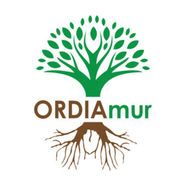Split-root approach reveals localized root responses towards apple replant disease (ARD) in terms of ARD biomarker gene expression and content of phenolic compounds (2021)
Rohr A., Staudt J., Cziborra K., Fritz A., Schmitz M., Winkelmann T.
Scientia Horticulturae, 286 (), 110117
doi:10.1016/j.scienta.2021.110117
Abstract
Apple replant disease (ARD) is a threat to apple fruit and tree production worldwide caused by shifts in the soil microbiome. Chemical and physical measures of soil disinfection are the most employed countermeasures but inter-row plantings demonstrate that ARD is widely immobile in the soil, which causes the plant to face ARD affected and healthy soil simultaneously in the field. We simulated this situation in a split-root approach and investigated the plant’s macroscopic and molecular reaction to localize its response. Root growth was severely reduced in two ARD soils. However, shoot growth was not proportionally reduced as long as half of the root system was growing in healthy soil. In ARD-affected roots, the expression of three ARD biomarker genes, biphenyl synthase 3, biphenyl 4-hydroxylase and ethylene-responsive transcription factor 1B-like, was locally induced after two weeks in comparison to disinfected ARD or control soil. Phenolic compound profiles in the roots were studied after eight weeks and showed a high variation between samples and soils. The total phenolic content as well as the contents of epicatechin and an unknown phenolic compound were locally increased in roots grown in ARD soil in comparison to disinfected ARD soil after eight weeks. Our results show how apple plants focus their molecular response towards ARD locally in the roots and are able to partly counteract the negative effects caused by ARD by growing into unaffected soil regions. The local nature of ARD presents both challenges in the assessment of ARD severity in the field and possible management strategies involving soil tillage.
